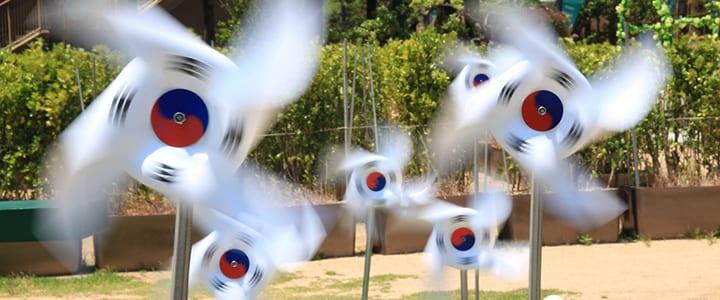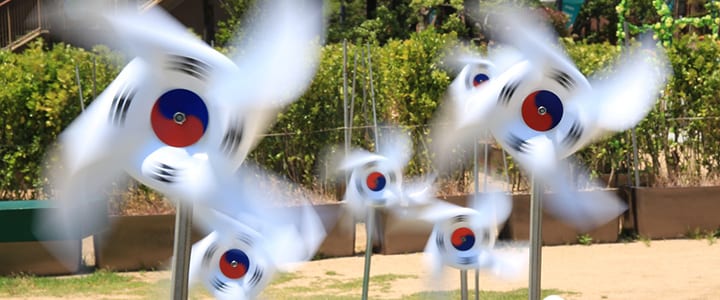Although Korean is the official language of both North and South Korea, there are noticeable differences in the dialect of the two nations. Here, we will examine these differences so you can gain a better overall understanding of the Korean language…
North Korea and South Korea were originally divided across the 38th Parallel, then later, along the Demarcation line. The division, a result of the end of Japanese rule following World War II, pitted the two nations in a bitter battle. Some 70 years later, much of the rivalry and tension continues to exist.
While North Korea and South Korea both officially speak Korean, there are subtle difference between the two languages, just as there are difference between the two cultures.
Korean Vocabulary
North Korea and South Korea have markedly different cultures, and because of this, the vocabulary that they use is very different. When looking at vocabulary in terms of North Korea vs. South Korea, it should be noted that South Korean culture is far more open to adopting words and phrases from other cultures.
Seoul is the epicenter of South Korean culture, and because of this, the majority of South Korean residents speak a language based off of the Seoul dialect. A great deal of English has been introduced into common vocabulary, as well as melding in with western entertainment, which is readily available in South Korea. Japanese words and phrases have also been adopted into the South Korean dialect for the same reason.
The same is not true for North Korea. North Korea is largely insulated and its residents have limited access to culture and information from other nations. Because of this, and an overall culture of isolation, the adoption of foreign words and phrases has been largely discouraged. English words are rarely used in the North Korean language. Most residents speak the Pyongyang dialect. Chinese, Japanese, and words of western origin have been stripped from the language in recent years, and adapted words generally have Russian origins.
Korean Pronunciation
Just as people in the United States pronounce words differently based on region, the same is true with North Korea and South Korea. The combination of consonants and vowels sound different between the two languages, and it can be difficult for an individual who has learned one language to decipher the other.
When looking at North Korea vs. South Korea in terms of the spoken word, one of the most obvious pronunciation differences is that of hanja. Hanja are Chinese characters adopted by the two cultures, but they are spoken in different ways, and used in different situations.
The use of hanja is more widespread in South Korea, but hanja is used, in informal conversation, in North Korea, as well.
The Korean Alphabet
When looking at the alphabet, there is a North Korea vs. South Korea version. Both nations use hangul and jamo for their written words. Jamo is a type of character alphabet, similar to Japanese hiragana. The actual writing is different when looking at North Korea vs. South Korea. The sound and tone of each character is often different, depending on the dialect and how far removed from the Demarcation zone a person is. The tone and infliction are subtle nuances that can be difficult for beginners, but they can change the meaning of words and phrases, especially in the written word.
If you’re interested In learning more about the subtle and not-so-subtle difference between the North Korean and South Korean languages, you should take language lessons with a native Korean speaker. A native Korean speaker is the most qualified person to teach you these differences and make sure you have a better understanding of the Korean language as a whole.
What do you find difficult or confusing about the different dialects? Let us know in the comments below!
Maile Proctor


